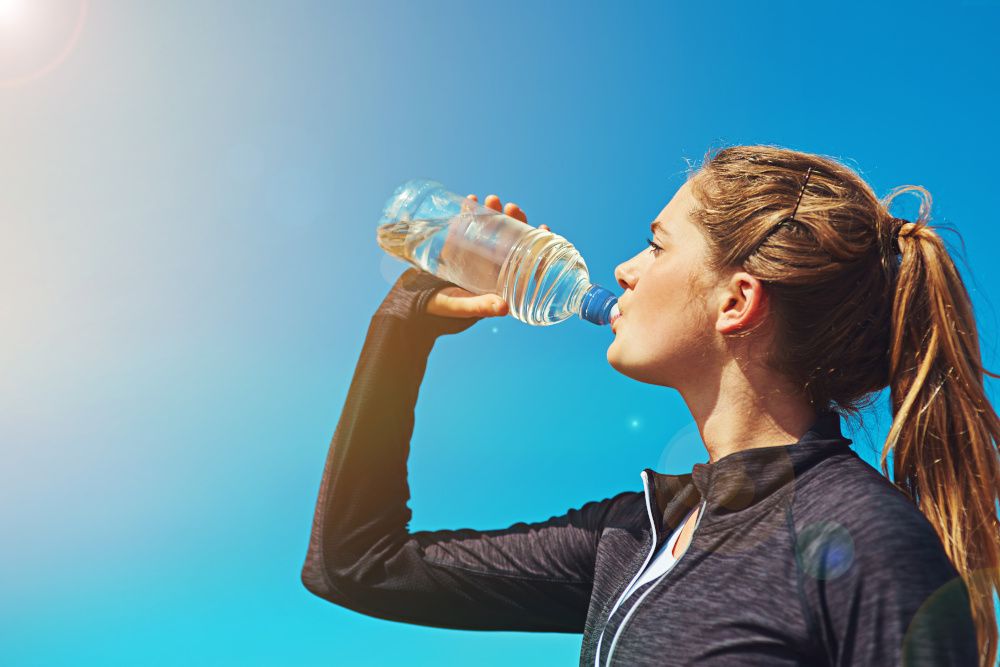Hydration beverages are evolving to appeal to a new consumer base
These drinks are now combining emerging ingredients and diverse health benefits.
Hydration drinks are exhibiting moderate growth, with data from Innova Market Insights (The Netherlands) showing an annual growth rate of 6% over the last five years. Consumers are increasingly looking for natural, low-sugar hydration beverages with added health benefits like energy-boosting or mood-supporting properties. Here are some of the major trends impacting modern hydration beverages.
Low-Sugar Is the Name of the Game
For most of the hydration market’s history, hydration beverages consisted of sports drinks offering carbohydrate and electrolyte formulations for athletes. Rachel Kreider, MPH, RD, vice president of product innovation and science for GNC (Pittsburgh, PA), says that as a registered dietician, she’s noticed that hydration beverages have been moving away from added sugars as consumers grow knowledgeable about the risks of a high-sugar diet.
“While moderate amounts of added sugar can be beneficial in helping to optimize athletic performance, many hydration products today are seeking to minimize the amount of added sugar used,” Kreider says. “Natural fruit concentrates and sugar-free sweeteners are rising as sugar alternatives in low-calorie hydration products.”
Hydration isn’t just for elite athletes anymore, either. It’s essential for everyone’s daily wellness. As such, hydration beverages are evolving to cater to the needs of everyday consumers instead of just athletes. GNCx Innovations recently launched its Amplified Hydration product, a hydration stick pack formulated with electrolytes, probiotics for gut health, and performance recovery–supporting Boswellia serrata extract to help reduce muscle soreness.
Hydration Drinks Go Multifunctional
In fact, more hydration beverages are moving beyond just hydration to offer a wider array of health benefits. Why? Consumers are looking not only for hydration, but also for body and mind benefits, says Laura Harper, marketing associate at Imbibe (Niles, IL). Hydration products on the market are leaning into functional benefits like stress relief, energy, motivation, focus, and immunity, Harper notes. Products like Joyburst Renew Hydration are using ingredients like Lion’s mane mushroom to improve mental focus, while Phizz’s Cherry Caffeine Boost rehydration tablets combine caffeine, guarana, B vitamins, and electrolytes to provide an energy boost along with a hydration benefit.
“We’ve seen an uptick in requests from companies looking to offer hydration products,” Harper says. “Some are focused solely on creating an effective hydration blend, while others have requested the inclusion of CBD, caffeine, natural energy sources, and other macronutrients.”
Powders, Tablets, and Ice Pops Dominate
Consumers are increasingly concerned with plastic waste, which is why many hydration beverage formats are going lightweight. Harper cites a recent Ipsos poll showing that 81% of American voters support policies that reduce single-use plastics. This would make it easier for consumers to reduce plastic waste and should be an important priority for hydration brands.
“In the case of Prime Hydration, launched in January 2022, they started with four hydration RTDs and shortly thereafter launched a companion powder product,” Harper says. “Nuun Hydration came to market with hydration tablets but recently released a hydration powdered drink mix. In the past several years, we’ve had customers ask for support developing many RTDs and powders, as well as tablets, liquid beverage enhancers, and ice pops, which is something we’d like to see more of.”
Pedialyte’s Freezer Pops have been around for several years, while Powderade’s Freezer Bars came to market in 2021. Other brands, Harper says, are using ice cream- or popsicle-inspired flavors.
Hydration Beverages Primed for Mainstream
Hydration drinks have diversified substantially since their beginnings as a simple sports workout product. With more consumers looking for hydration beverages, formulators are developing low-sugar options in an array of formats. These beverages are also increasingly multifunctional, addressing health concerns ranging from mental stamina to immune health and more.
The consumer base for hydration beverages is also evolving, with new products targeting everyday consumers looking for regular hydration support as well as the “weekend warrior” casual athlete. Harper says that instead of targeting athletes, brands have recognized that the hydration market can be segmented into sports hydration and “everyday” hydration. As a result, brands are launching a variety of new products targeting everyday consumers. As hydration drinks continue to evolve and expand beyond their original niche, expect more diverse and innovative beverages to hit store shelves.
Prinova acquires Aplinova to further increase its footprint in Latin America
April 7th 2025Prinova has recently announced the acquisition of Brazilian ingredients distributor Aplinova, which is a provider of specialty ingredients for a range of market segments that include food, beverage, supplements, and personal care.











